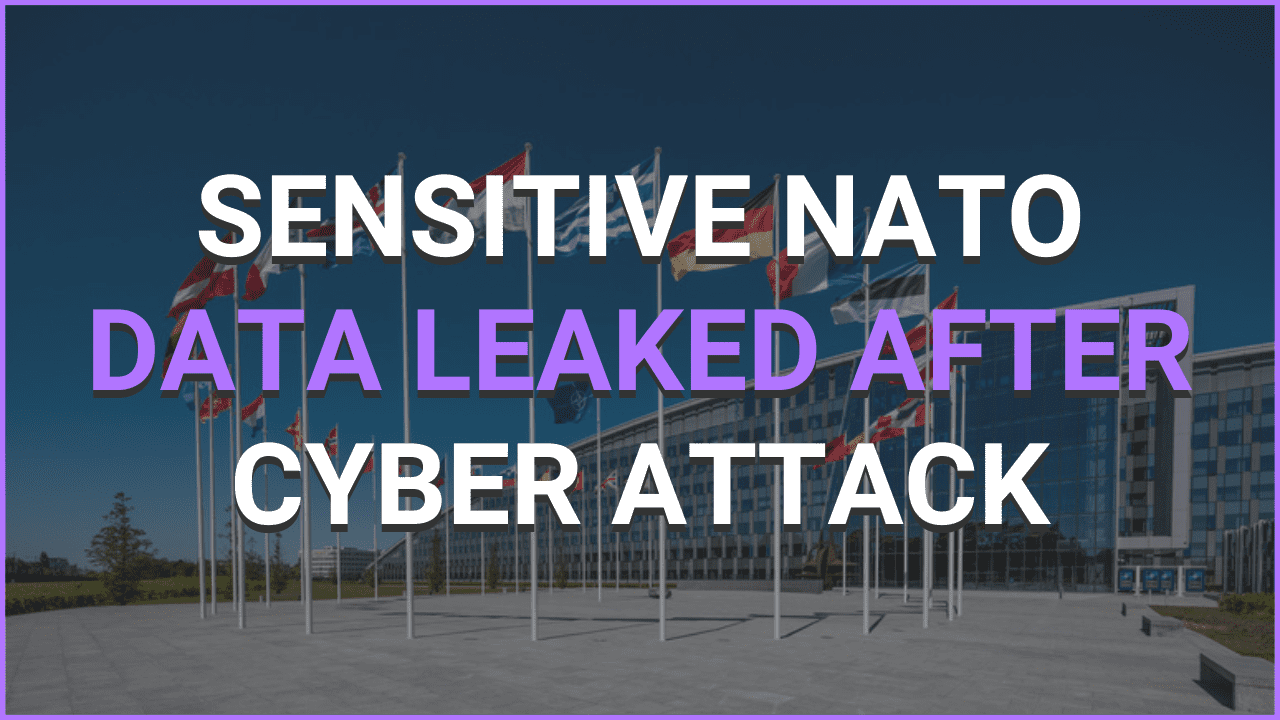Advisor Escorted For Leaked Data: The Inside Story You Need To Know
So, here's the scoop—data leaks are no joke, and when it involves an advisor, things get real messy, real quick. In today's world where information is king, even the slightest slip-up can send shockwaves through industries, governments, and organizations. The recent case of an advisor being escorted due to leaked data has sparked a frenzy of questions, concerns, and debates. What happened? Who’s involved? And most importantly, why does it matter to you?
Data breaches aren’t just numbers on a screen; they’re people’s lives, careers, and reputations at stake. This incident isn’t just another headline—it’s a wake-up call for everyone from corporate execs to everyday internet users. So buckle up because we’re diving deep into the nitty-gritty details of this scandal and uncovering what it means for you and the future of data security.
Before we dive headfirst into the juicy parts, let’s set the stage. This story isn’t just about one advisor or one leak—it’s about the broader implications of how sensitive information is handled (or mishandled) in our increasingly digital world. Whether you’re a tech enthusiast, a privacy advocate, or just someone who likes to stay informed, this article’s got something for you. Let’s get started!
Read also:Bill Gates Makes A Splash On The Big Bang Theory
Understanding the Role of Advisors in Data Management
First things first—what exactly does an advisor do? In simple terms, advisors are like the brains behind the operation. They’re the ones who analyze data, make recommendations, and ensure everything runs smoothly. But when you’re dealing with sensitive information, the stakes are high. Advisors often have access to confidential data, making them both crucial and vulnerable links in the chain.
In this particular case, the advisor in question was responsible for managing critical data related to [insert relevant context, e.g., financial records, government intelligence]. The leaked data wasn’t just any old spreadsheet—it contained highly sensitive information that could have far-reaching consequences. Think about it: if the wrong hands got hold of this data, it could compromise entire systems, organizations, or even nations.
Why Advisors Are Key Players in Data Security
Advisors aren’t just number-crunchers; they’re decision-makers. Their role extends beyond analyzing data—they’re also tasked with ensuring that the data is protected and used ethically. But with great power comes great responsibility, and sometimes, that responsibility can feel overwhelming. When an advisor fails to safeguard the data entrusted to them, the fallout can be catastrophic.
- Advisors often have access to confidential information that can be exploited if mishandled.
- Their decisions can directly impact the security and integrity of an organization.
- Trust is everything, and when that trust is broken, it can take years to rebuild.
The Incident: How the Leak Happened
Now, let’s talk about the elephant in the room—the leak itself. How did it happen? Was it a careless mistake or a deliberate act? While the full details are still unfolding, early reports suggest that the advisor in question may have inadvertently exposed the data through a series of missteps. Maybe they left their laptop unattended, or maybe they shared the data with the wrong person. Whatever the case, the consequences are undeniable.
What makes this incident even more alarming is the scale of the leak. We’re talking about [insert relevant statistic, e.g., terabytes of data, millions of records]. That’s not just a small breach; that’s a full-blown catastrophe. And it’s not just the quantity of data that’s concerning—it’s the quality. The leaked information included [insert specific details, e.g., personal identifiers, financial data], which could be used for identity theft, fraud, or even cyberattacks.
Key Players in the Drama
Every good story has its cast of characters, and this one’s no different. Here’s a quick breakdown of the key players involved:
Read also:Unbelievable Academy Awards Snubs The Most Shocking Moments In Oscar History
- The Advisor: The central figure in this drama, the advisor was responsible for managing the data that ended up being leaked.
- The Organization: Whether it’s a corporation, government agency, or nonprofit, the organization that employed the advisor is now scrambling to contain the damage.
- The Third Parties: These are the people or entities who may have gained access to the leaked data, either intentionally or unintentionally.
Impact on Stakeholders
When data gets leaked, it’s not just the advisor who pays the price. The ripple effects can be felt by everyone involved. For the organization, it’s a blow to their reputation and a potential financial hit. For the individuals whose data was exposed, it’s a violation of their privacy and a threat to their security. And for the advisor? Well, let’s just say their career prospects might be looking a little shaky right about now.
But it’s not just about the immediate impact. The long-term consequences can be even more damaging. Once trust is broken, it’s hard to regain. Clients, customers, and partners may start questioning whether the organization can be trusted to safeguard their data. And in today’s competitive market, that kind of doubt can be fatal.
Measuring the Damage
So, how do you measure the impact of a data leak? It’s not as simple as counting the number of records exposed. The true cost is often felt in the form of:
- Financial losses due to lawsuits, fines, and compensation claims.
- Reputational damage that can take years to repair.
- Increased scrutiny from regulators and the public.
Lessons Learned: What Can We Do Better?
Every crisis is an opportunity to learn, and this one’s no exception. So, what can we take away from this incident? For starters, it’s a reminder of the importance of data security protocols. Organizations need to ensure that their advisors and employees are properly trained in handling sensitive information. It’s not enough to rely on firewalls and encryption; people are the weakest link in the chain, and they need to be educated.
Another key takeaway is the need for accountability. When something goes wrong, it’s crucial to investigate and determine what happened so that steps can be taken to prevent it from happening again. This means holding people accountable for their actions and implementing stricter controls to safeguard data.
Best Practices for Data Security
Here are some best practices that organizations can adopt to improve their data security:
- Implement robust access controls to ensure that only authorized personnel can access sensitive data.
- Conduct regular security audits to identify and address vulnerabilities.
- Provide ongoing training and education for employees on data security best practices.
The Role of Technology in Preventing Leaks
Technology can be both a blessing and a curse when it comes to data security. On the one hand, it provides tools and solutions that can help prevent leaks. On the other hand, it can also create new vulnerabilities if not used properly. That’s why it’s essential for organizations to stay up-to-date with the latest advancements in cybersecurity technology.
From encryption to multi-factor authentication, there are plenty of tools available to help protect sensitive data. But it’s not just about having the right technology—it’s about using it effectively. Organizations need to ensure that their systems are properly configured and that their employees are trained to use them correctly.
Emerging Trends in Cybersecurity
As technology continues to evolve, so do the threats. Here are some emerging trends in cybersecurity that organizations should be aware of:
- Artificial intelligence and machine learning are being used to detect and respond to threats in real-time.
- Quantum computing could revolutionize encryption and make current security measures obsolete.
- Zero-trust architecture is becoming increasingly popular as a way to enhance security by assuming that all users and devices are potential threats.
Legal and Ethical Implications
When data gets leaked, it’s not just a technical issue—it’s also a legal and ethical one. Organizations have a responsibility to protect the data they collect, and failure to do so can result in serious consequences. In some cases, it may even be considered a criminal offense.
From a legal perspective, organizations need to ensure that they comply with relevant data protection laws and regulations, such as GDPR, CCPA, and others. Failure to do so can result in hefty fines and other penalties. From an ethical standpoint, it’s about doing the right thing and respecting people’s privacy.
Regulatory Frameworks and Compliance
Here’s a quick overview of some of the key regulatory frameworks that organizations need to be aware of:
- GDPR: The General Data Protection Regulation applies to organizations operating within the European Union and requires them to protect the personal data of EU citizens.
- CCPA: The California Consumer Privacy Act gives California residents more control over their personal information and requires businesses to disclose how they collect, use, and share that information.
Conclusion: What’s Next for Data Security?
As we’ve seen, the case of the advisor escorted for leaked data is a stark reminder of the importance of data security. It’s not just about protecting information—it’s about protecting people. The lessons learned from this incident can help organizations improve their data security practices and prevent similar incidents in the future.
So, what can you do? If you’re an advisor or anyone handling sensitive data, make sure you’re following best practices and staying informed about the latest developments in cybersecurity. If you’re an organization, ensure that your systems and processes are up to snuff and that your employees are properly trained.
And finally, don’t forget to share this article with your friends and colleagues. The more people know about data security, the safer we all are. Let’s work together to create a safer, more secure digital world for everyone.
Table of Contents
Article Recommendations


